IN ENGLISH
Montenegro: Media and Freedom of Expression, Regular Report 2013
Objavljeno prije
11 godinana
Objavio:
Monitor onlineIn 2013, Montenegrin independent media and its representatives have been exposed to stronger and more vicious attacks and pressures than in the previous years. Independent dailies Vijesti and Dan and the weekly Monitor continued to be the main targets. These were manifested through physical assaults on journalists and independent paper’s premises, financial pressures and legal proceedings. Not surprisingly, therefore, Montenegro is now ranked on the Reporters without Borders’ list on media freedoms at the 113th position, which is lower than year before when Montenegro was on 107th place. In Europe, only Macedonia, Belarus, Russia and Ukraine have lower rankings, while in the region Bosnia is at 68th position, Serbia on 63th.
The 2013 EU Progress Report contains the following statements in this regard:”The involvement of public officials, in particular police officers, in cases of intimidation and assaults against journalists remains a source of serious concern, as does the recent rise in cases of violence against journalists. All old and recent cases of threats and violence need to be thoroughly investigated and prosecuted” and, “Freedom of expression needs to be strengthened, including by properly investigating all cases of violence and threats against journalists and bringing perpetrators to justice.”
The case of Tufik Softic: In August 2013, Mr. Tufik Softic, a journalist of the weekly Monitor and daily Vijesti was attacked by an explosive device activated in the front yard of his house that has damaged his car. This journalist was also attacked 6 years ago at the same location where he was brutally beaten by several persons. No person has ever been held responsible for the violent acts against the journalist, who at that time suffered serious injuries. In his reporting for Monitor and Vijesti, Mr. Softic investigated smugglings of cigarettes and other illegal goods in the northern region of Montenegro.
The case of Miodrag Babovic and Luka Zekovic: Journalist and a photographer of the daily Vijesti, were attacked on 3 September by Vladimir-Beba Popović, director of the newly founded NGO Institute for Public Policy and former Communications Chief of the Serbian Government, while performing their regular duties in front of the Institute’s premises. Mr Popovic took away the camera from the journalists and attacked them verbally, while Mr Zoran Jovanovic, a bodyguard of Prime Minister Djukanovic, was standing next to him. Vijesti filed a suit against Mr Popovic, but the same was rejected. Beforehand, Prime Minister Djukanovic stated that the attack was fabricated and that “it never happened.”
The case of Olivera Lakic: On 20 July 2012, the Basic Court of Podgorica sentenced Ivan Buskovic to nine months in prison for physically attacking Vijesti reporter Ms Olivera Lakic on March 7, 2012.The attack, preceded by threats against Lakic and her family, followed articles she wrote alleging that cigarettes with fake branding were illegally produced at the tobacco factory in the northern town of Mojkovac. Ivan Buskovic, a 29-year-old petty criminal whom Lakic recognized as her attacker, according to Ms Lakic did not have any motive to assault her. Authorities continue to investigate whether Buskovic was operating under the orders of others, an issue the court did not address. In December 2012, Montenegrin prosecution authorities examined in relation to this case Mr Milenko Rabrenovic, a police officer and driver of Mr Veselin Veljovic, former head of the Montenegrin Police Authority, but the motives, master-minders and organizers of these attacks are still unknown.
The case of Vijesti premises: Stones have been thrown twice on Vijesti’s premises. This happened during the Pride Parade, on 20 October 2013 and a month later. Although there is a video record of the second attack, no one has been held responsible for the same.
Police authorities have still not found the arsonists who torched four vehicle of Vijesti during summer 2011. Although representatives of the police and government claim that they are diligently working on these cases, no progress can be reported in their resolving to date.
The case of Milena Perovic: President of the Assembly of the Municipality of Kolasin, Mr. Mile Sukovic conveyed threats to Monitor’s journalist Ms Perovic in a telephone conversation with a representative of the weekly’s editorial board. This happened during summer, after Ms Perovic wrote an article describing business deals and the political career of Mr Sukovic. The Prosecutor’s Office initiated a case against Mr Sukovic in this regard. The case is now under consideration by the Basic court of Kolasin.
The case of Milka Tadic Mijovic: Executive Director of Monitor has received a threatening and vulgar SMS message on 16 November that she reported to the police. Although the message was sent from an unprotected telephone number, police authorities have still not disclosed the identity of the author of these threats.
The case of Marko Milacic: Monitor’s journalist was physically attacked in a restaurant by Veselin Barovic, a Montenegrin businessman and his bodyguards. Mr Barovic is a close friend of Prime Minister Djukanovic. The first level court concluded that Mr Barovic was not guilty, but the second level court has returned the case for reconsideration by the first level court.
The case of Aleksandar Vuckovic: Vijesti’s journalist has been verbally attacked on 11 December by Dragan Djurickovic, the coach of the Montenegrin boxing team and member of the Montenegrin Special Police Force. A court case was launched against Mr Djurickovic, who has been punished in the meantime by his superiors and removed to another unit in the Police.
The case of bomb explosion in front of Vijesti’s premises: On 26 December, shortly before midnight, a strong bomb explosion shook the offices of the daily Vijesti. Fortunately, no one was hurt in the blast, which appeared to target a room used by Editor-in-Chief Mihailo Jovovic, shattering windows and damaging the facade of the Vijesti building. Jovovic was in his office and another 15 people were in the building at the time of bombing. Police authorities have not found who was involved in this terroristic act.
Montenegrin police and judiciary did not manage to solve numerous previous cases of physical attacks on journalists and editors in Montenegro, starting with the 2004 murder of publisher and editor of daily Dan, Mr Dusko Jovanovic, the 2008 murder of Srdjan Vojicic in 2008, a guard of Montenegrin poet Jevrem Brkovic, followed by the attacks on Tufik Softic, Jevrem Brkovic, Zeljko Ivanovic, Mladen Stojovic, Olivera Lakic and others. Minister of Internal Affairs Rasko Konjevic has announced that an independent commission will be formed to investigate the unsolved attacks on journalists and that the same will include representatives of independent media and civil society organizations.
Treatment of the independent media representatives as criminals and enemies: Representatives of the independent media have been accused for being disloyal to the Montenegrin state and depicted as non-patriotic, even for belonging to the organized crime.
In numerous public appearances over the past year, Prime Minister and leader of the ruling political party DPS Milo Djukanovic continued campaigning against the independent media. Public verbal attacks on independent media by the Prime Minister and other senior state officials are highly inflammatory. For example, in an October 2013 public radio interview, Mr. Djukanovic referred to a co-founder of Vijesti and Monitor as “the leader of the Montenegrin media mafia” and predicted the imminent closure of these media outlets. In November 2013, he also attended an exhibition of the state-funded conference “Words, Pictures and the Enemy”, whose key purpose was to portray the independent media as “the enemy” of the state.
Prime Minister Djukanovic depicted the representatives of independent media as rats that need to be deratized. On more than one occasion, Djukanovic has repeated that media and civil activists represent a major barrier on the Montenegrin road towards Europe, that they chase away foreign investors by writing about corruption and organized crime, and that they want to bring down the current administration by all possible means.
Mr Djukanovic falsely accused the independent media for coordinating the opposition parties, and for founding parties. Last year, he announced the arrest of Miodrag Perovic, co-founder of the daily Vijesti and the weekly Monitor.
This propaganda is coordinated by top DPS officials, with advisory support by the Public Policy Institute, and is implemented by the daily Pobjeda, TV Pink and TV 777. Pobjeda has published several serials about the independent media and its representatives, using hate language and grossly distorting facts. In them, female journalists and civil activists are called prostitutes, while owners and male journalists are presented as fools, animals and national traitors.
Damaging false claims by Pobjeda and PINK TV in October and November have included allegations that Vijesti’s and Monitor’s founders are corrupt and involved in criminal gangs and statements that TV Vijesti’s audience is falling (an attempt to deter advertisers). In 2010, Pobjeda published a series of 43 articles, whose excerpts are occasionally reprinted. They contain, among others, false claims that Vijesti’s owners had engaged in tax evasion and had links with the organised crime.
On the other hand, only in the independent media one can find serious investigative pieces on corruption, non-transparent privatizations, links between the political elite and criminals, etc. The aim is clear – to silence and discipline the independent media, their founders, editors and journalists by publicly lynching them.
Financial pressures through advertising: The biggest portion of the total advertising budget from the state institutions – the national and local governments, agencies, ministries, state owned companies – goes mostly to the media controlled by the state and ruling political structures. A recent research conducted by the Center for Civic Education, has concluded that the state-controlled daily Pobjeda, albeit with the smallest circulation, benefits from the greatest number of advertisings by the state institutions and enterprises.
Pobjeda sells its advertising space to the state companies and institutions for much higher prices than those charged by dailies Vijesti and Dan. Also, Pobjeda offers very low advertising prices to private companies, thus threatening the independent media to lose their main source of revenue.
The ownership structure: Media controlled by the ruling DPS officials are financed in a non-transparent way and it remains unclear who really owns them. Most of them are bankrupt; some have multi-million losses but still keep functioning. Government covers losses of Pobjeda by means of unlawful state aid, while the Radio Television of Montenegro is directly funded by the budget. Behind other media, publicly or secretly, stand tycoons and their companies who support government’s propaganda and interests. This distorts competition on the media market and degrades professional standards.
Indicative is the case of daily Pobjeda which remains in state ownership, even though the Media Law of 2002 foresaw its privatization by 2004. Two ill-prepared tenders launched in the meantime have predictably failed, so the Government is continuing to finance the newspaper in violation of the laws on competition and state aid. The state subsidy to Pobjeda accumulated since 2004 totaled 24 million Euros by the end of 2012. Besides domestic laws, this continuous illegal practice infringes directly on the country’s Stabilisation and Association Agreement that prohibit unlawful state aid and threatens to squeeze the private print media out the market. Several appeals made by EU representatives on the Montenegrin government to relinquish ownership control and stop subsidizing the daily have been ignored.
Court cases: In the last few years dailies Vijesti and Dan and weekly Monitor have paid over 300 000 Euros for alleged libel and for pain and suffering of the plaintiffs, Prime Minister Djukanovic and his close representatives of business elite included. In a majority of these cases penalties imposed in the Montenegrin courts have not been in accordance with the practice of HRC and have jeopardized the economic survival of these media, and thus the freedom of speech and expression.
Lawsuit by Ana Kolarevic: The sister of PM Milo Djukanovic, lawyer Ana Kolarevic filed a lawsuit against independent papers Vijesti, Monitor and Dan, seeking compensation of 100,000 Euros from each of these papers. The pretext is the alleged mental pain that she has suffered as a result of the medias’ reporting on the Telecom affair. Earlier, the US court authorities in New York opened high-level corruption case related to the Telecom privatisation in 2005. In New York Court documents, Prime Minister Djukanovic’s sister is brought in connection with this affair and its dubious contracts, which were highlighted by the media that she is now suing. Ms Kolarevic has decided to file a lawsuit only ten months after the first articles, when it was clear that her brother will return to the post of Prime Minister.
Kolarevic lost the cases against Dan and Monitor, but won the case against Vijesti, although this lawsuit was identical to those against Dan and Vijesti.
Public radio and television: The editorial board of RTV Montenegro insists on entertainment and sport, which get lots of funds that are set aside (for example airing the Champions League). At the same time educational, scientific and informative program, which are the foundations of every public service broadcast productions that are below professional standards. In the news programs, the primacy is still given to the ruling parties and leading government officials, while the activities and views of the opposition and civil society representatives are under-represented.
RTV Montenegro is accused by some members of its Board for non-transparent allocation of funds in previous years, as well as for closing suspicious contracts worth millions with the off shore company Fiesta. This company has been for more than ten years an agent for leasing of satellite services for RTV Montenegro. Interestingly, the company”Fiesta” was in the middle of corruption scandal during the privatization of the Montenegrin Telecom company.
Self regulatory body: Media Self-Regulation Council (Medijski savjet za samoregulaciju -MSS) which brought together 19 print and electronic media was formed in March 2012. A significant number of these media is financed from state and local budgets, while the majority does not keep distance from the ruling structures. This body focuses its activity on regulation of media that are not its members, as are Vijest and Dan and fails to notice the obvious breaches of ethical standards by its own founders. The well known NGO Human Rights Action has made this observation in its recent monitoring report on the activities of self-regulatory bodies which also confirmed suspicions that media who are members of MSS are the most frequent violators of the Journalistic Codex and ethical norms..
On the other hand, daily Vijesti founded its own self -regulatory body, media ombudsman as well as TV Vijesti.
Milka Tadić Mijović, CEO Weekly Monitor,
Željko Ivanović, CEO Daily Vijesti
Komentari
IN ENGLISH
Government Summons Ambassadors for Consultations and Instructions: A Foreign Policy Tightrope
Objavljeno prije
1 sedmicana
12 Aprila, 2025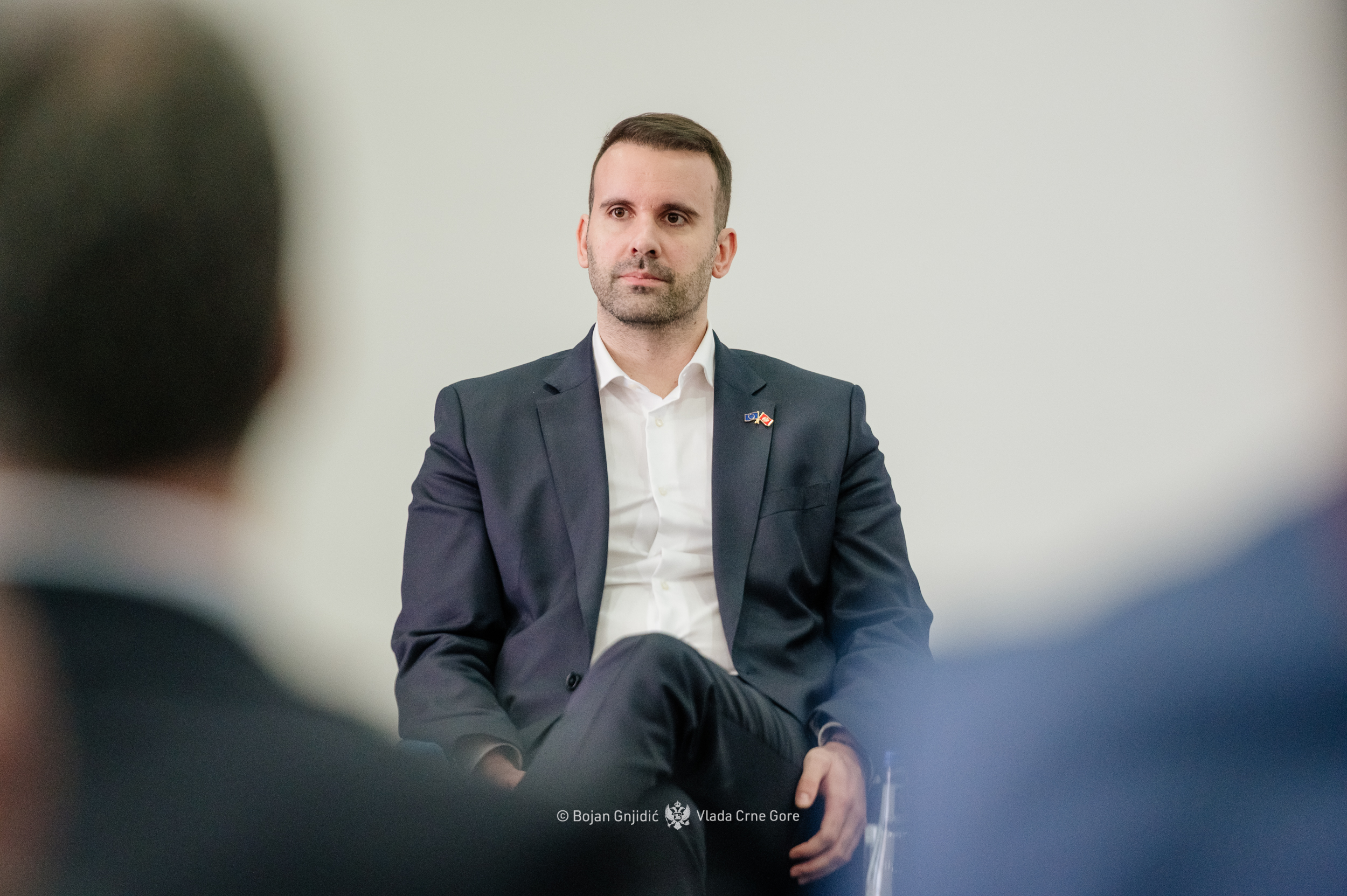
Prime Minister Milojko Spajic recently held a series of individual meetings with Montenegrin ambassadors—from Ukraine to Europe to the United States. Informal sources within the government say that during these meetings, the Prime Minister outlined a new geopolitical landscape shaped by Donald Trump’s return to power in the U.S. and evolving dynamics with the European Union
At the end of February, the Ministry of Foreign Affairs (MFA), led by Minister Ervin Ibrahimovic, summoned nearly all Montenegrin ambassadors stationed in Europe and the U.S. for urgent consultations, set to begin on March 6. The move sparked anxiety among some diplomats, who feared a repeat of the events of November 15, 2024, when three ambassadors were abruptly dismissed.
Monitor finds out that Spajić met separately with key diplomats, including Ukraine-based Borjanka Simicevic and U.S.-based Jovan Mirkovic. However, the concerns of mass dismissals proved unfounded. Instead, sources say the Prime Minister emphasized Montenegro’s continued commitment to the EU and instructed ambassadors to maintain a clear, pro-European stance. At the same time, he advised them against making any public criticisms of the United States or commenting on current rifts between the U.S. and its European allies.
Montenegro’s calibrated position became evident on March 11 at a meeting of top European military officials in Paris, where strategies for supporting Ukraine were discussed following Washington’s announcement of a suspension in military aid. The U.S. was not invited to the Parish meeting as the European leaders were keen to show they could step up independently if needed. Though an AP report initially stated that only Montenegro and Croatia, among NATO’s European members, failed to respond to the invitation, the Prime Minister’s Security and Defense Advisor, Todor Goranovic, told Radio Free Europe (RFE) that Montenegro would indeed participate. However, only the deputy military representative to NATO in Brussels attended because “Chief of General Staff Zoran Lazarevic was officially visiting Bulgaria at the time” – Goranovic explained.
Meanwhile, dissatisfaction is growing within Montenegro’s ruling coalition over Ambassador Mirkovic’s performance (or the lack thereof) in Washington. Tensions reportedly flared after a mid-February meeting with U.S. officials where he suggested that the fall of Serbian President Aleksandar Vucic could weaken some of his Montenegrin puppets. The details of the aforesaid meeting could not be independently confirmed. The subsequent report sent to Podgorica reportedly angered Spajic’s coalition partners from the former Democratic Front (DF). Although the DF was not directly mentioned in the report, its officials saw themselves as being referred to by the ambassador. One of them even retorted that those remarks would be a ground for the ambassador’s recall.
Discontent also emerged from the opposite ideological camp. Metropolitan Boris of the Montenegrin Orthodox Church (MOC) sent a protest letter to Minister Ibrahimovic, complaining that the embassy in Washington did not engage with the MOC delegation during their visit. The embassy, he wrote, failed to meet with them or assist in organizing meetings with U.S. officials. Furthermore, Metropolitan Boris complained that the embassy was “ignorant of some names and institutions that we wanted to reach out to”. He directly blamed the ambassador for the embassy’s dismissive stance.
As Monitor has previously reported, the embassy in Washington is increasingly out of sync with developments in the U.S. The once-prominent Montenegrin Caucus in Congress, which boasted 42 members under former ambassador Srdjan Darmanovic, has effectively dissolved. It’s now reduced to a single member—Congresswoman Chellie Pingree from Maine. Darmanovic had successfully lobbied to counter opposition to Montenegro’s NATO membership, despite concerns over ties of the Djukanović government with foreign criminal networks and Russian intelligence services.
Pingree reportedly sent multiple letters to the embassy criticizing the lack of engagement, but received no response. Monitor also reached out to her office twice for comment but had not received a reply at the time of publication.
Diplomatic affairs aren’t running smoothly in Europe either. In late January, the government approved the appointment of 14 new ambassadors. The list was coordinated with President Jakov Milatovic, whose signature is required for the appointments. Opposition parties and members of the pro-Serbian bloc raised objections, particularly over the inclusion of figures associated with the long-ruling Democratic Party of Socialists (DPS) and former foreign minister Milan Rocen.
One such appointee is Dragana Radulović, a longtime diplomat and former advisor to Prime Minister Dusko Markovic. She was posted to New York as Montenegro’s representative to the UN. She has been in diplomacy since 2000. Internal sources indicate that Veljko Milonjic initially hoped for the post in New York but was instead sent to Warsaw. Milonjic is remembered for his involvement in the so-called “cocaine affair” of 2015 when he was the head of Montenegro’s consulate in Munich. A truck from Munich carrying drugs under diplomatic seal was intercepted at the Austrian border. Though the Ministry of Foreign Affairs denied direct involvement, the incident cast a long shadow. Milonjic denied wrongdoing but was quietly recalled while the Consulate General in Munich was closed down. Milonjic was later appointed to a senior diplomatic post despite the scandal never being prosecuted. The truck driver, Sasha Mugosha, was sentenced to six years in prison. He was released after serving two and a half years and deported to Montenegro.
In March, the government announced that former German Bundestag member Holger Haibach had been appointed as a senior special advisor to Prime Minister Spajic, beginning January 1. Haibach will advise on regional relations in the Western Balkans and support EU accession efforts. His services will be funded by Germany’s Center for International Peace Operations (ZIF). While Haibach’s selection followed a public hiring process, sources in the diplomatic community question his current influence in Berlin. Haibach, a former CDU member of parliament, left office in 2011. Meanwhile, Veljko Kustrov, a Herzegovinian with close ties to Spajic, is considered his main point of contact in Germany.
Perhaps the most controversial diplomatic appointment so far is that of Dusanka Jeknic, a figure from the 1990s linked to the Djukanovic regime and repeatedly associated with cigarette smuggling. However, the Italian prosecutors could not present sufficient evidence against her in court. Jeknic was assigned to the embassy in Turkey after President Milatovic purchased property from her in Podgorica. Milatovic later claimed he had not been consulted on her appointment, stating that such decisions were under the MFA’s jurisdiction. He emphasized that his property purchase had been properly reported to Montenegro’s Agency for the Prevention of Corruption.
Previously, Milatovic had criticized the appointment of Predrag Drecun to lead Montenegro’s Investment Development Fund because of his close ties to the Djukanovic regime.
Montenegro is yet to drive a long and bumpy road before it gets a professional diplomatic network.
Jovo MARTINOVIĆ
Komentari
IN ENGLISH
TWILIGHT OF MONTENEGRIN INTERESTS IN AMERICA: Prayer Breakfast Instead of Real Diplomacy
Objavljeno prije
1 sedmicana
12 Aprila, 2025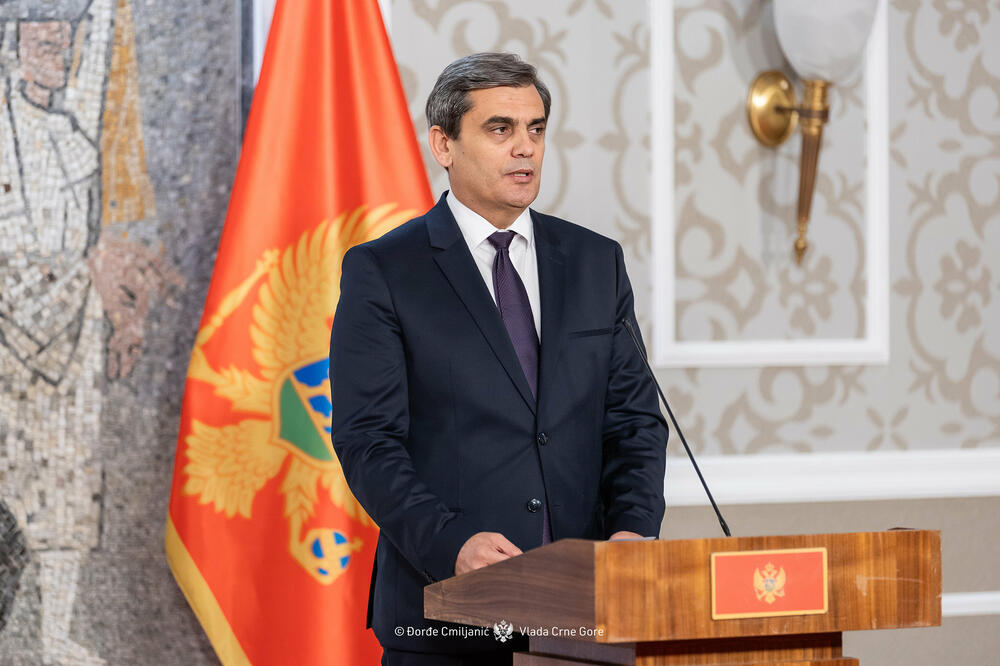
Aside from occasional trips and engagements with diaspora organizations, Montenegro shows little sign of having a coherent lobbying strategy in the United States. With the retirement of Congressman Doug Lamborn, the Montenegrin Congressional Caucus has dwindled to just one representative: Congresswoman Chellie Pingree from Maine
The 73rd annual National Prayer Breakfast in Washington recently took place, drawing more than three thousand leaders and prominent figures from politics and civil society from around the globe. Over the course of two days, participants had opportunities to network and exchange ideas at the Hilton Hotel, under the official patronage of the U.S. President.
Invitations were extended to a broad range of Montenegrin officials, including Prime Minister Milojko Spajic, Foreign Minister Ervin Ibrahimovic, Deputy Prime Minister for Economic Policy Nik Djeljoshaj, Minister of Urban Planning Slaven Radunovic, Minister of Transport Maja Vukicevic, and Minister for Human and Minority Rights Fatmir Djeka. Parliamentary invitees included many MPs, both from the opposition and the majority. Former President Milo Djukanovic and his close aide Branimir Gvozdenovic received invitations as well as several other ex officials. Also in attendance was Vijesti columnist and co-founder Zeljko Ivanovic—reportedly the only one whose travel wasn’t funded by taxpayers.
Branimir Gvozdenovic is often featured in pro-DPS (Democratic Party of Socialists) media as a regional liaison for the Prayer Breakfast. However, his name is absent from the official records of the event’s organizing foundation. Meanwhile, the Montenegrin delegation was accompanied by support staff including security, administrative personnel, and translators — necessary, since only Minister Vukicevic speaks fluent English. Translation was required for Djukanovic, Gvozdenovic and most MPs.
The cost of attending the Prayer Breakfast—including registration fees, three nights in a hotel, airfare, and daily allowances (currently €112 per day) — typically totals around $3,000 per person. When accompanying staff is added, the total bill reaches into the tens of thousands of euros. Out of the entire group, only Ministers Ibrahimović and Djeka were scheduled for official meetings at the U.S. State Department.
Minister for the Diaspora Adem Azemovic, representing the Bosniak Party, made his second trip to the U.S. in a month, accompanied by two associates. In late December, he met with Naser Nika, head of the Albanian-American Association of Staten Island. After the New Year he returned to meet him again. When asked why a second meeting was necessary, the Ministry explained that the first encounter had been brief, and the second was based on an official invitation. The association, which includes Albanian Montenegrins living in Staten Island, was praised for promoting Montenegro in New York.
Azemovic also visited the New York State Assembly, which is reportedly considering hosting Montenegro’s Independence Day celebration. His office described this as an opportunity to mark one of the country’s most significant holidays in a high-profile setting. Interestingly, Montenegro’s Independence Day was already celebrated at New York City Hall on May 23, 2024, in an event organized by the Albanian-American Association of Ulcinj. That celebration included Montenegro’s Consul Amer Cikotic and the Association’s president Dzelal Lanica. Nika had publicly criticized the event on Facebook, claiming that it misrepresented interethnic relations in Montenegro and highlighted Serbian political influence via Serbian President Vucic-backed factions.
Despite these diaspora engagements, there is little to suggest that Montenegro has any serious lobbying efforts in Washington—particularly with key decision-makers. Nebojsa Medojevic, leader of the Movement for Change (PZP), remarked that “Montenegro simply failed to grasp the magnitude and significance of political changes occurring in the U.S.”
“The current ambassador —Professor Jovan Mirković is openly anti-Trump and a personal ally of Aco and Milo Djukanovic” Medojević stated. “He has no meaningful contacts in Washington and no ideological alignment with the current direction of U.S. politics, so it’s unclear who or what he’s even representing.” He went on to question the competence and professionalism of the current government’s foreign policy team.
Interestingly, Nebojsa Todorovic, the former chargé d’affaires in Washington, had warned the Ministry of Foreign Affairs (MFA) and the government in late 2023 to prepare for a potential return of Donald Trump.
Since arriving in Washington in mid-September, Ambassador Mirkovic has maintained a notably low profile. His biography reveals he spent several years in Russia during the early 1990s—the same period when Milan Rocen was serving as minister-counselor at the Yugoslav embassy. Sources claim that Mirkovic has family ties in Russia and is known for his longstanding loyalty to the Djukanovic regime. Neither Djukanovic nor his Democratic Party of Socialists (DPS) have ever renounced their 2011 strategic cooperation agreement with Putin’s United Russia. In fact, the DPS publicly reaffirmed its pride in these ties in Parliament last year.
With the departure of Doug Lamborn—one of the Montenegrin Caucus’s co-chairs—the group now counts only a single member: Congresswoman Chellie Pingree. Meanwhile, Serbia has been actively growing its influence. Foreign Minister Marko Djuric, a former ambassador to Washington, has built up the Serbian Caucus to nearly 40 members. Djuric even boasted that Serbia, though not a NATO member, has stronger U.S. ties than Montenegro.
Some claim that Serbia pressured Podgorica through influential regional businessmen into sending a low-impact figure to Washington. The contrast with past Montenegrin diplomacy is stark: Under Ambassador Srdjan Darmanovic, the Montenegrin Caucus had grown to 42 members, surpassing even the Albanian caucus. Darmanovic worked closely with Congressman Mike Turner to gain U.S. support for NATO accession—despite Djukanovic’s regime then-notorious links to organized crime and Russian intelligence services.
Efforts to revive the caucus were briefly relaunched by Nebojsa Todorovic, who during his stint as chargé d’affaires in 2023 helped re-engage 10 U.S. lawmakers, including Turner and other influential committee chairs such as Michael McCaul and Robert Aderholt. For a brief period, Montenegro held a unique status in the Balkans, with three Congressional committee leaders in its caucus.
However, Todorovic has since been recalled, and with him, much of Montenegro’s presence in Washington has faded again into inertia.
This raises uncomfortable questions: Is Spajic’s government reverting to the old practice of conducting diplomacy through informal channels and business networks, as seen under Djukanovic and his top advisor Rocen? At the time, oligarchs like Oleg Deripaska and other Putin loyalists were reportedly enlisted to lobby for Montenegro in the West.
That line of approach came at a steep cost to the country—and its reputation.
Jovo MARTINOVIĆ
Komentari
IN ENGLISH
2BS FORUM IN KGB HOTEL: Atlantic Council of Montenegro – who and what it represents?
Objavljeno prije
5 mjesecina
7 Novembra, 2024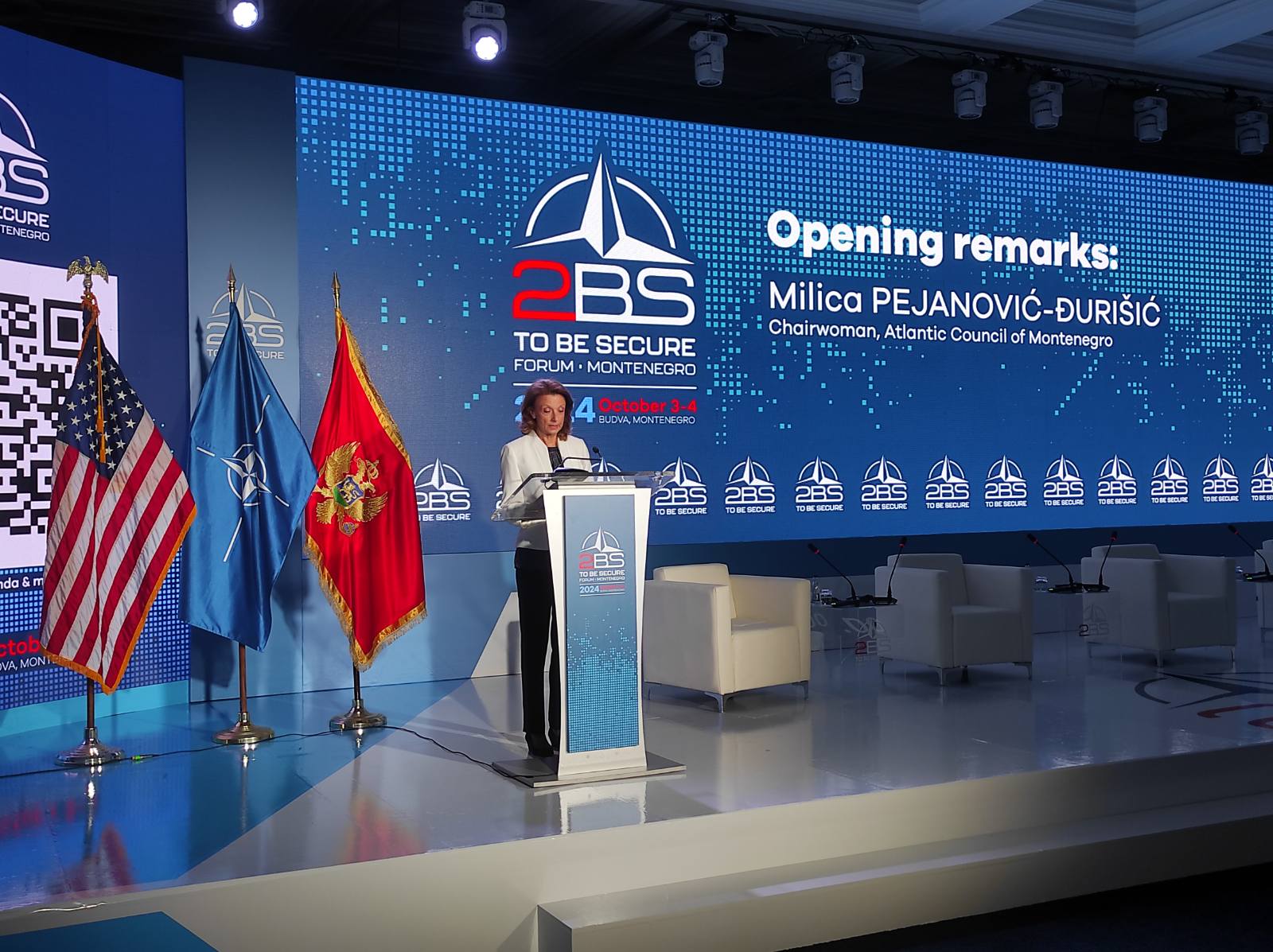
The current ACM chairperson is Milica Pejanovic – Djurisic, a long-time official of the once ruling DPS, former minister of defence and a reputable senior diplomat. The activities of the ACM are realised through three centres of which the Digital Forensic Center (DFC) comes to the fore. DFC was founded in 2018 and has released a number of publications on Russian malign influence, mainly from the view point of DPS
Last week (3-4 Oct) the 14th To Be Secure Forum Montenegro (2BS) took place in Hotel Splendid in Becici – Budva, under the auspices of the Atlantic Council of Montenegro (ACM). Its website states that 2BS is a leading politico – security conference in Southeast Europe. This year’s topic is World in Disorder: Turning Adversity into Opportunity with a focus on the repercussions and security challenges in the Western Balkans.
The event brought together more than 400 participants including government officials, high-ranking representatives of international organisations and diplomatic missions, and prominent experts in security and international relations. ACM points out that “it has devoted itself to the promotion of Euro-Atlantic values and international security since it was founded in 2006”. In the same year, the ACM became a member of the global Atlantic Charter Association (ATA).
The current ACM chairperson is Milica Pejanovic – Djurisic, a long-time high official of the Democratic Party of Socialists (DPS). She was also a Minister of Defence and a reputable senior diplomat. The ACM activities are carried out through 3 centres, of which the most exposed is the Digital Forensic Center (DFC) founded in 2018. DFC has released a number of publications on the subject of Russian malign influence, mainly from the view point of DPS. Allegedly, the DFC was founded in order to “fight against disinformation, fake news and propaganda campaigns aimed at destabilising democratic processes in Montenegro and the Western Balkans.”
The founder of the 2BS Forum and the DFC is Savo Kentera from Budva. He chaired the Montenegrin Atlantic Council from 2008 until May 2022, when the minority government of PM Dritan Abazovic (supported by DPS in the national assembly) appointed him to head the National Security Agency (NSA). Mr Kentera lasted little less than 5 months. As soon as the 12th 2BS Forum in Becici was over, he was sacked by the government following the DPS termination of support to Abazovic after he signed signed the controversial Concordat with the Serbian Church (SOC). Prior to his sacking Mr Kentera launched an NSA operation against Russian spy network, allegedly in cooperation with international partners and the Special Prosecutor’s Office (SPO). Two Montenegrin citizens were arrested, 6 Russian diplomats were expelled, and 28 foreigners were barred from entering the country.
However, the whole operation turned out to be a farce. Eventually, the two Montenegrins were not accused for espionage. Only one was suspected for illegal possession of weapons. No trial has ever taken place.
It is worth noting that the 2BS Forum founder (who claims that he supports Euro-Atlantic values) for many years chose the same hotel for the conferences. The founder of Hotel Splendid and its majority owner is now late Viktor Ivanyenko – retired director of the infamous KGB. During his term under President Boris Yeltsin, the service changed its name to the Federal Security Service (FSB). How a state employee and the chief of spies of the Russian Federation (and with money of dubious origin) came to own 4 hotels on the Montenegrin coast was never a reason for any concern, let alone inquiry, while the country was led by so-called pro-western Milo Djukanovic.
The Russian president Vladimir Putin (who was also at the helm of FSB following Ivanyenko’s retirement) said in 2004 that “ there is no such thing as a former KGB man”. The hotel is known as a meeting place of Russian intelligence and foreign and local business people and/or criminals. One of them, very close to Djukanovic, was put on the US Treasury’s blacklist, while another of his buddies is now under the protection (from going to prison) of Aleksandar Vucic.
Not only politicians and criminals have links with the Russian intelligence. In the aforesaid hotel on 24 May 2022 the then head of the Montenegrin Church (MOC) Miras Dedeic (The Rt Rev. Mihailo) met with a GRU (Main Intelligence Directorate) colonel Leonid Malofeyev. After a 5-hour meeting the two were photographed together. Mr Malofeyev, whose photographs with the Rt Rev. Mihailo were published by Podgorica-based Antena M, appeared in the robes of the Metropolitan of Moscow and All of Russia of The True Orthodox Church of Russia under the monastic name of Seraphim.
The aforementioned religious organisation (which is one of the proxies of the Russian intelligence) has developed deep ties with the MOC, including financial ones, according to critics of Bishop Mihailo. On the other hand, the Serbian Church has never even tried to conceal its non-spiritual ties with the Moscow Patriarchate. Based on the briefly opened state archives after the collapse of the USSR, the current Russian Church (ROC) head Kirill Gundyayev, is also a KGB agent who was later awarded tax free business with alcohol and cigarettes.
Much has already been published and circulated about substantial financial and political support of Vladimir Putin and his oligarchs to the project of independent Montenegro. Published audio conversations (covertly recorded) of the then Serbia and Montenegro ambassador to Russia Milan Rocen (and a long time confidante of Milo Djukanovic) have shed a new light on the Russian role in Montenegro’s independence drive. The release of heretofore unpublished recordings were recently heralded by the pro-Russian outlet IN4S. However, the publication of contents which could be potentially harmful to the DPS was stopped – allegedly on orders from the Russian embassy.
Under the DPS and its leader Djukanovic, Montenegro became one of the hubs for Russian spies and Russian organised crime in Southeast Europe. The western press and official reports of the western governments constantly warned about the Russian influence in Djukanovic’s fiefdom. Moreover, in 2011, the DPS signed a strategic agreement with Putin’s United Russia which has never been revoked. The DPS was recently challenged in the Montenegrin parliament to revoke the agreement with the United Russia. However, a DPS MP indirectly ruled it out.
In March 2023, a Russian opposition paper Novaya Gazeta and Transparency International, published a detailed report on the continued influx to Montenegro of Russian dirty capital, spies and intelligence experts for cyber warfare in 2019.
The purchase of real estates, including a cultural heritage site protected by law, and the further entrenching of Russian intelligence could not happen without the blessing of the DPS authorities. Back in 2019, Montenegro was already in NATO and claimed that it was on bad terms with the Kremlin due to so-called coup d’etat attempt in the fall of 2016 in the wake of parliamentary elections. The subsequent televised trial turned into a satirical farce resulting in the first-instance acquittal of all the defendants.
Nevertheless, the subsequent reactions of the prime minister show that the conference was rather used to promote Djukanovic again. Furthermore there are allegations of behind-the-stage efforts to broker a coalition deal for power sharing in the capital city of Podgorica with the political forces of the current president, Jakov Milatovic.
Spajic didn’t turn up at the Forum. He tweeted on X that the conference went “contrary to expectations” and became “mainly a platform for the analysis of local Podgorica election results by prominent experts like Djukanovic and Milatovic. They silenced the foreign guests by bickering against their own country.” According to informal sources, the Government has not wired the money yet.
The quantity and quality of ACM’s cooperation with similar organisations is also questionable, at least when it comes to the promotion of the aforesaid Euro-Atlantic values. Those values should primarily mean support for democracy, the rule of law and fight against organised crime.
In communication with our paper, the director of the European Center of the Atlantic Council of the USA, Jorn Fleck, emphasises that the ACM and the American Atlantic Council are two completely different organisations. As for the activities of the US Atlantic Council in Montenegro, Fleck says that “one of the Europe Center’s nonresident fellows attended the Western Balkans Growth Summit in May in Kotor. The same fellow was invited by event organisers to attend the inauguration of President Milatovic”. Furthermore, “in 2019, the Atlantic Council took a delegation of Congressional Staffers to the region, including a stop in Montenegro”.
Komentari
Kolumne

Novi broj
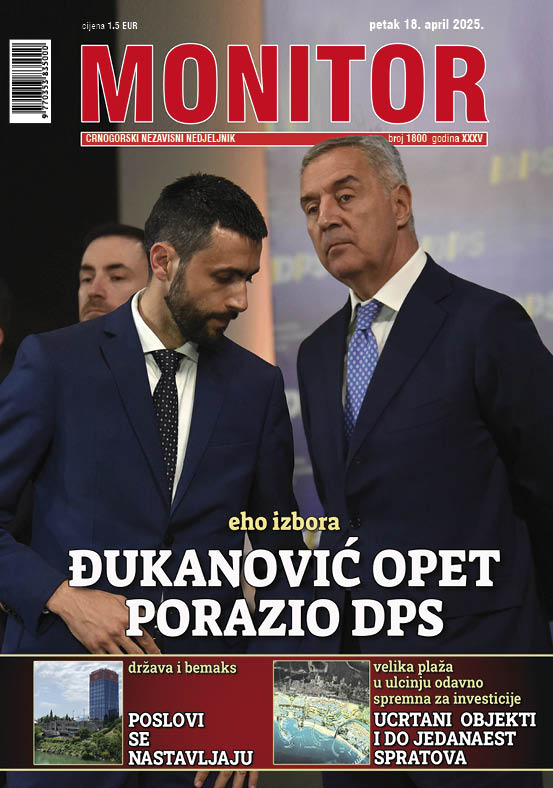

O Filipu Davidu, prosvjetitelju

IN MEMORIAM – MARIO VARGAS LJOSA: Božanski talentovani pripovjedač

SAFET SIJARIĆ “LJUBAV NA MILJACKI”: Roman o ljubavi koja prkosi smrti i pamćenju koje pobjeđuje zaborav
Izdvajamo
-
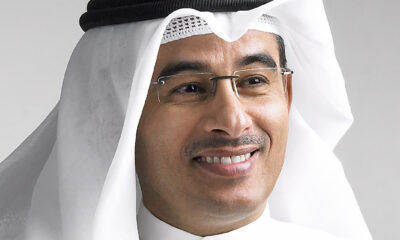
 DRUŠTVO4 sedmice
DRUŠTVO4 sedmiceŠEIK MOHAMED ALABAR – MEGA INVESTITOR NA VELIKOJ PLAŽI: Planove izradili planeri Beograda na vodi
-
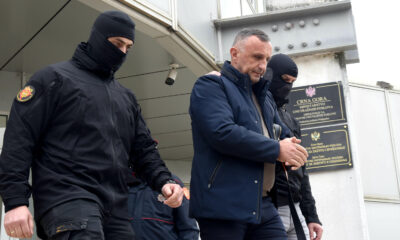
 DRUŠTVO3 sedmice
DRUŠTVO3 sedmiceNOVA HAPŠENJA ZBOG ŠVERCA CIGARETA: Pao i drugi vlasnik Tehnomaxa
-
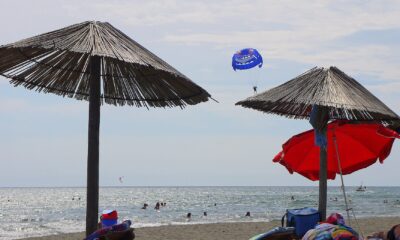
 DRUŠTVO4 sedmice
DRUŠTVO4 sedmice,,SLUČAJ TENDER” ZA ULCINJSKA KUPALIŠTA: Brzina koja budi sumnju
-

 Izdvojeno4 sedmice
Izdvojeno4 sedmiceGAZA U IZRAELSKO-AMERIČKOM PAKLU: Zeleno svijetlo za čišćenje
-

 IN ENGLISH1 sedmica
IN ENGLISH1 sedmicaTWILIGHT OF MONTENEGRIN INTERESTS IN AMERICA: Prayer Breakfast Instead of Real Diplomacy
-
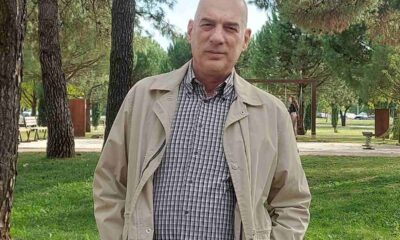
 INTERVJU4 sedmice
INTERVJU4 sedmiceBALŠA BRKOVIĆ, PISAC: Svi smo mi pod krovom neke nadstrešnice
-

 IN ENGLISH1 sedmica
IN ENGLISH1 sedmicaGovernment Summons Ambassadors for Consultations and Instructions: A Foreign Policy Tightrope
-

 Izdvojeno3 sedmice
Izdvojeno3 sedmiceVLADA ZVALA AMBASADORE NA RAPORT I INSTRUKCIJE: (Ne)sluh za vanjsku politiku






